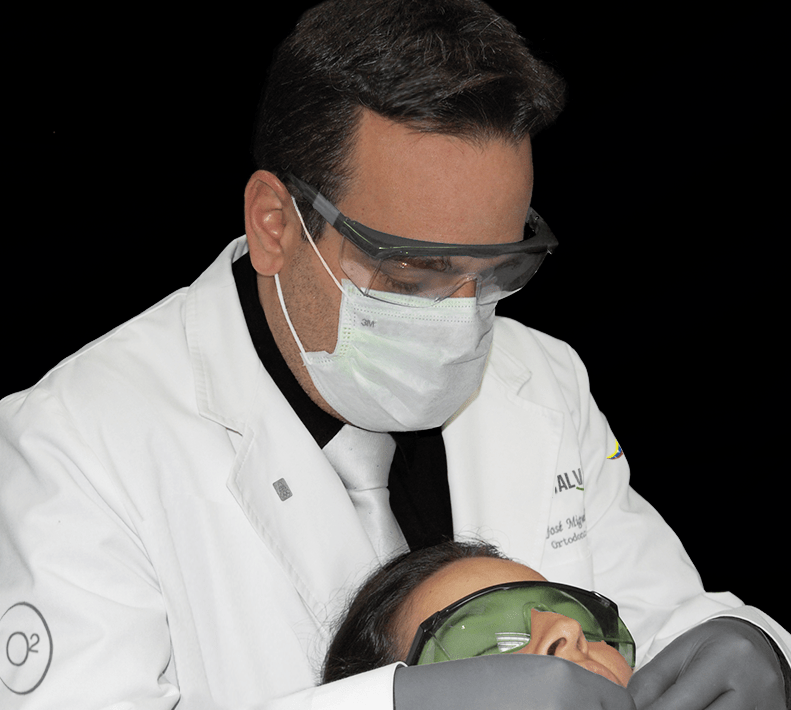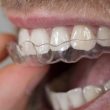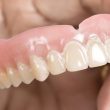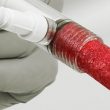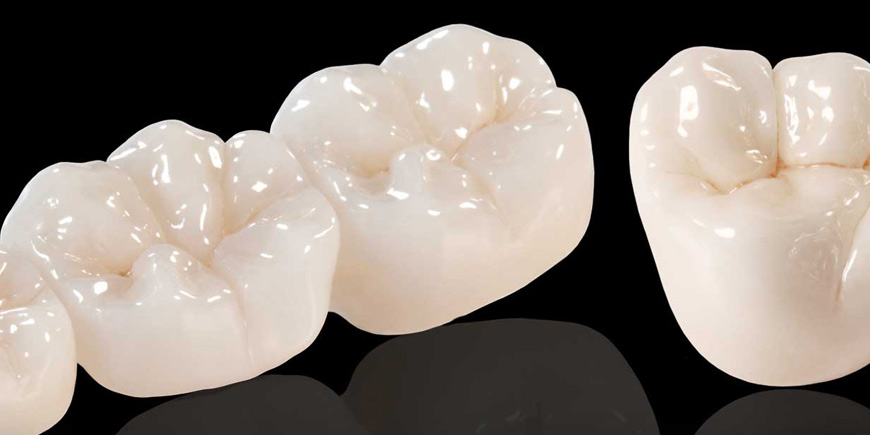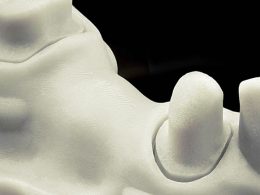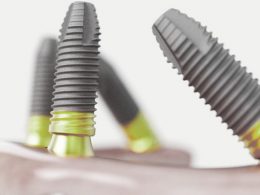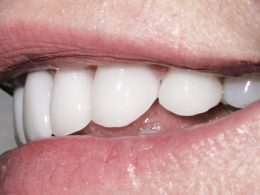Table of Contents
Crowns and fixed bridges are two Restorative Dentistry treatments used to repair teeth that are severely damaged or to replace missing teeth. They can correct both aesthetics and function and differ from removable dentures in that they are fixed inside the mouth and cannot be removed. Both are an excellent option for your oral rehabilitation, since they can be very comfortable and long-lasting if they are given the necessary care.
A crown covers and restores a tooth that is damaged or that we need to improve its appearance, color and shape. Other reasons to have a dental crown include the replacement of large fillings and the rehabilitation of dental implants.
If you are missing one or more teeth, fixed bridges can be made to fill in the spaces. The teeth on either side of the space or edentulous gap act as pillars (abutments) for the bridge and are used to support and retain the prosthesis. A fixed bridge can have two or more crowns attached or fused together.
Crowns and fixed bridges can be made of different materials. In this post our Specialists share some knowledge to provide you with more information in this regard:
Commonly Used Materials in Fixed Prosthodontics
Depending on their purpose, crowns and fixed bridges can be made from different materials. For example, if the goal is to improve the appearance of a smile, then a material will be chosen that can make the restoration looks natural in the mouth, such as ceramic or porcelain.
Strength is another important characteristic of a crown or fixed bridge. Often the material chosen will combine toughness and good looks. The most commonly used materials for crowns and bridges are porcelain, ceramic, metal alloys, gold, and acrylic. However, the choice of which material to use is something that should be left to the Specialist and their laboratory technicians, who will know what may work best based on the characteristics of your case. These are the 7 most common materials for the fabrication of crowns:
1- All-Ceramic
Ceramic structures, also known as porcelain, are ideal for anterior teeth. Being 100% metal-free, they offer impressive translucency that perfectly mimics with natural teeth. In addition, this material is a very good thermal insulator, which makes it suitable in cases of a history of tooth sensitivity.
Zirconium and Lithium Disilicate, are perhaps the two best-known types of materials for making this type of structures.
All-ceramic crowns and fixed bridges are expected to last between 5 and 15 years. Although it is a very strong material, it is usually contraindicated in those who suffer from bruxism or dental clenching. Ceramic is a harder material than the teeth themselves, and in these cases, it can wear away the enamel of the opposing teeth. Another factor to take into account when choosing all-ceramic restorations, is that they must be thicker than metal ones, and they usually require greater wear on the natural tooth for adjustment and adaptation.
The easiest way to classify the ceramics used in Dentistry is by the way they are processed:
- Powder/Liquid, With or Without Crystalline Fillers These are the porcelains that are used to cover metal, alumina or zirconia cores; but they can also be used for veneers with the refractory matrix technique.
- Prefabricated Blocks for CAD/CAM, With or Without Crystalline Fillers Available for this system are from vitreous ceramics for full contour restorations, to crystalline ceramics for the fabrication of cores and base frameworks.
If you want to know more about our preferred ceramic system, please access the following post Kindnesses of Our IPS e.max® Ceramic System.
2- Porcelain Fused to Metal
Often abbreviated as PFM, it offers a combination of the best properties of metal and porcelain, and has certainly been the most widely used type of framework in the history of Dentistry.
As with metal-free ceramics, PFM dental restorations can be matched to the color of natural teeth. They occupy second place, after metal-free ceramics, in terms of aesthetic benefits. PFM crowns are an excellent option for both anterior and posterior teeth. Due to the high strength provided by the metal layer, PFM crowns are an excellent choice for fixed bridge abutments.
Of course, as with all options, this material has some disadvantages. Those patients with a low smile line, may notice some darkness around the edge of the gums, usually caused by the transillumination of the inner metal layer. As with non-metal ceramics, the porcelain layer of a PFM crown is susceptible to cracking when it is not properly cared for or abused, by biting into solid objects or excessively hard food.
It is important to care for and use these types of restorations in the same way as natural teeth, which means avoiding their use as mechanical tools to uncover things, crush ice, grind bones or chew hard candies. These materials are strong and a great choice for dental crowns, but they are not indestructible, far from it.
3- Gold
Does it surprise you?, it is normal. Many people think of gold structures as something luxurious or collectible. However, gold has been used to make dental crowns for centuries. In fact, the first known use of this mineral dates back to 200 A.D. and it was made by the Etruscans. Among other objects, they used gold to create crowns and dental bridges.
In addition to having a great history, gold is biocompatible, which means that it is not harmful to human tissues. Additionally, when combined with small amounts of other metals to form an alloy and enhance its physical properties, gold is a great material for restoring teeth, as it is resistant to the forces and wear of chewing in thin layers.
The main drawback of gold crowns is their color. We understand that very few people today want to show off a gleaming gold tooth in their smile. For this reason, gold alloy dental crowns are ideal for posterior teeth, which are rarely or never seen by others.
4- Metal Alloys
Dental metal alloys are typically a mixture containing gold, platinum, or chromium; combined with other metals. They are the most resistant and durable materials, compared to the other materials available for the elaboration of dental crowns. They are capable of withstanding high stresses and rarely chip or fracture.
As with gold dental crowns, metal alloy crowns only require the removal of a small amount of dental tissue to provide enough space and material thickness, to guarantee their structural stability and functional strength.
Also, and like gold, their main drawback is the metallic color. For this reason, these types of crowns are generally placed on posterior teeth, where the aesthetic factor is not of major relevance.
5- Composites
Dental composite material crowns are not permanent, and are used mainly for the restoration of severely decayed primary teeth or with hypohydrotic ectodermal dysplasia, an inherited disease that causes dental malformations of shape and structure.
They are generally made with the help of celluloid matrices. Current composites guarantee adequate retention, due to the strong mechanical bond that they achieve with the tooth structure, through 5th generation adhesives.
6- Stainless Steel
Stainless steel crowns are the treatment of choice in cases of complex caries in primary teeth, as they offer retention and resistance, many times higher than that of other types of conventional restorations, such as amalgam fillings, for example.
Their main advantages are durability, low cost, easy handling, high possibility of success and the fact that they offer great protection against recurrent caries, especially in patients with a predisposition to it. They are not used in adults.
7- Acrylic Resins
The acrylic resins that are most used in Dentistry are those derived from acrylic acid and methacrylic acid. Their main indication in fixed prosthodontics is the creation of crowns, bridges and temporary protections.
They should never be used as a permanent material, as they are porous, do not offer a good marginal seal, and wear out very easily.
“Currently, Zirconium and Lithium Disilicate, Are the Two Materials that Provide the Best Aesthetics Results in Fixed Prosthodontics”.
DENTAL TIP
Benefits of Fixed Restorations
The benefits of the fixed prosthesis far outweigh those of removable dentures. A fixed bridge will completely mimic natural teeth and is a long-term solution to tooth loss. It also offers:
- Best Aesthetics Crowns, especially those made of porcelain, reproduce with great fidelity the anatomy and dental morphology, allow the incremental layering technique to achieve visual polychromatism and reflect a brightness very similar to that of dental enamel. In addition, they do not have visible hooks or flanks, which makes them very close to the ideal prosthetic prototype.
- More Comfort Being fixed, these restorations have absolute retention and stability, they do not move or tilt when speaking, eating and chewing; and being less extensive and bulky, they are better accepted by any type of patient.
- Longer Longevity With proper care, crowns and fixed bridges can last up to 20 years in the mouth, without the need for periodic refilling or adjustments, as is the case with removable dentures. In addition, they do not transmit forces on the mucosa or the alveolar bone, which prevents their reabsorption due to functional overload, a phenomenon that makes removable dentures barely reach 4 or 5 years of useful life.
Ready to Finally Get the Dental Treatment You Deserve?
All you have to do is send us your dental basic studies so that our professional team can analyze your case and offer you the best treatment option, many times impossible to pay in your home country.
Lower pricing does not always mean reduced quality. DENTAL VIP Specialists are trained in the most modern dental techniques, and we are equipped with state-of-the-art instruments.
We will offer the best price at the best quality for you in dental implants, all on 4, crowns and bridges, oral surgery, zygomatic implants, aesthetic dentistry, endodontics, full mouth reconstruction and other highly specialized treatments.
If you are considering coming to Venezuela for dental work, contact us for more information on how we can help you.
Our WhatsApp Business contact +58 414-9033547 and our email info@dentalvipcaracas.com are at your absolute and complete disposal to make inquiries and provide you with the best possible guidance in Dentistry.
